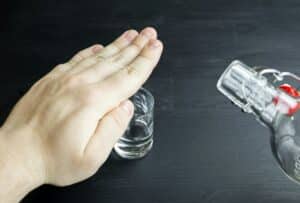Prescription drugs are commonly prescribed to treat everyday health issues like chronic pain, insomnia, or post-surgery recovery. Prescription drugs are an effective form of medication. However, when a person takes more than their prescribed dose or continues taking the drugs when their prescription runs out, it is a sign of prescription drug addiction. Other signs of prescription drug abuse include mood swings, changes in sleep, and poor decision-making.
Prescription drug addiction is becoming more of a problem. Therefore, understanding the most commonly abused prescription drugs can help prevent addiction. If you believe you or someone you know is experiencing a dependency on prescription drugs, you must reach out for help. Contact Northpoint Nebraska at 888.351.3834 to learn how our prescription drug addiction treatment program can help you or your loved one.
5 Commonly Abused Prescription Drugs
1. Benzos
Benzos or benzodiazepines are a type of drug that works by calming the nervous system. They are typically prescribed to treat conditions such as insomnia, occasional anxiety, or seizure disorders. When used correctly, benzos can help treat and manage symptoms. Long-term use can lead to addiction.
Benzos work by releasing dopamine and GABA. Dopamine is the pleasure chemical in your brain and increases feelings of calmness and joy. GABA promotes calm and helps people sleep. The high levels of dopamine release can make benzos highly addictive. Some commonly prescribed benzos are Klonopin, Ativan, Xanax, Valium, and Librium.
2. Opioids
Opioids are prescription drugs commonly used for pain relief. With long-term use, the pain-relieving effects of opioids can decrease, making pain worse. A person may begin to use more of an opioid drug to manage their pain. This is how opioids have a commonly abused prescription medication. If a person continues to increase their opioid dose, they can become dependent on opioids and eventually addicted. Some common opioid prescriptions are Vicodin, OxyContin, Percocet, and fentanyl.
3. SSRIs
Serotonin reuptake inhibitors, or SSRIs, are prescription drugs used to treat anxiety and depression. SSRIs increase the levels of serotonin in the brain and block the reabsorption of serotonin into neurons. More serotonin is available in the brain to carry signals between brain nerves.
Depression and anxiety are common mental health disorders that many struggles with. SSRIs are commonly prescribed to treat these conditions but are one of the most abused prescription drugs. Zoloft, Prozac, and Lexapro are commonly prescribed SSRIs.
4. Amphetamines
Adderall is the most commonly prescribed amphetamine and is used to treat attention-deficit hyperactivity disorder or ADHD. Adderall works by speeding up reactions from the brain to the body. Students commonly use it to help them focus. Adderall also raises dopamine levels, which makes it a commonly abused prescription medication.
5. Barbiturates
Barbiturates are a drug physicians that commonly prescribe to improve sleep and treat anxiety. They have a depressant effect on the brain and increase GABA, which has a calming, sedating effect.
The main reason why barbiturates are one of the most abused prescription drugs is that it is habit forming. This means that patients can develop a fast tolerance to the medication, which can lead to overuse.
Get Effective Prescription Drug Addiction Treatment at Northpoint Nebraska
At Northpoint Nebraska, we provide prescription drug treatment that helps patients overcome addiction to a variety of prescription drugs. We take an integrated approach to addiction treatment by providing a number of evidence-based programs for our patients. Some of these programs include:
Drug Detox and Rehab
The process of drug detoxification and rehabilitation involves the safe and supervised withdrawal from substances followed by comprehensive treatment to address the underlying causes of addiction.
Alcohol Detox and Rehab
Alcohol detoxification and rehabilitation encompass a comprehensive approach to help individuals overcome alcohol addiction.
Co-Occurring Disorders
Treating co-occurring disorders requires an integrated approach that addresses both conditions simultaneously to ensure effective and long-lasting recovery.
Medical Intervention
Medical intervention involves the use of medications, monitoring of vital signs, and managing withdrawal symptoms to ensure the safety and comfort of individuals undergoing treatment.
Relapse Prevention
Relapse prevention strategies are an integral part of addiction treatment that aims to minimize the risk of returning to substance use after achieving sobriety.
CBT (Cognitive-Behavioral Therapy)
CBT is a therapeutic approach that focuses on identifying and modifying negative thoughts, beliefs, and behaviors that contribute to addiction.
Family Therapy
Family therapy involves the inclusion of family members in the addiction treatment process. It aims to enhance communication, address family dynamics, and then provide support to both individuals in recovery and their loved ones.
One-on-One Counseling
One-on-one counseling, also known as individual therapy, is a core component of addiction treatment. It provides a safe and confidential space for individuals to then explore their thoughts, feelings, and experiences related to addiction.
Take the First Step Now
Are you or someone you know struggling with an addiction to prescription drugs? If so, our team can help. Reach out to Northpoint Nebraska today at 888.351.3834.




